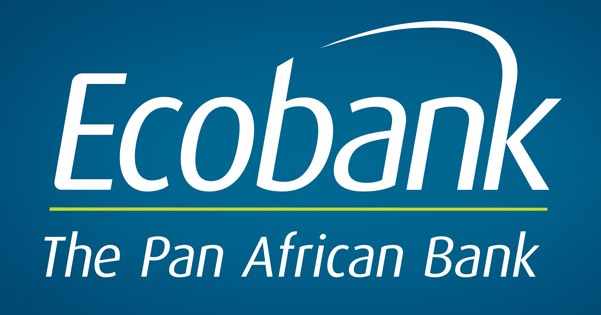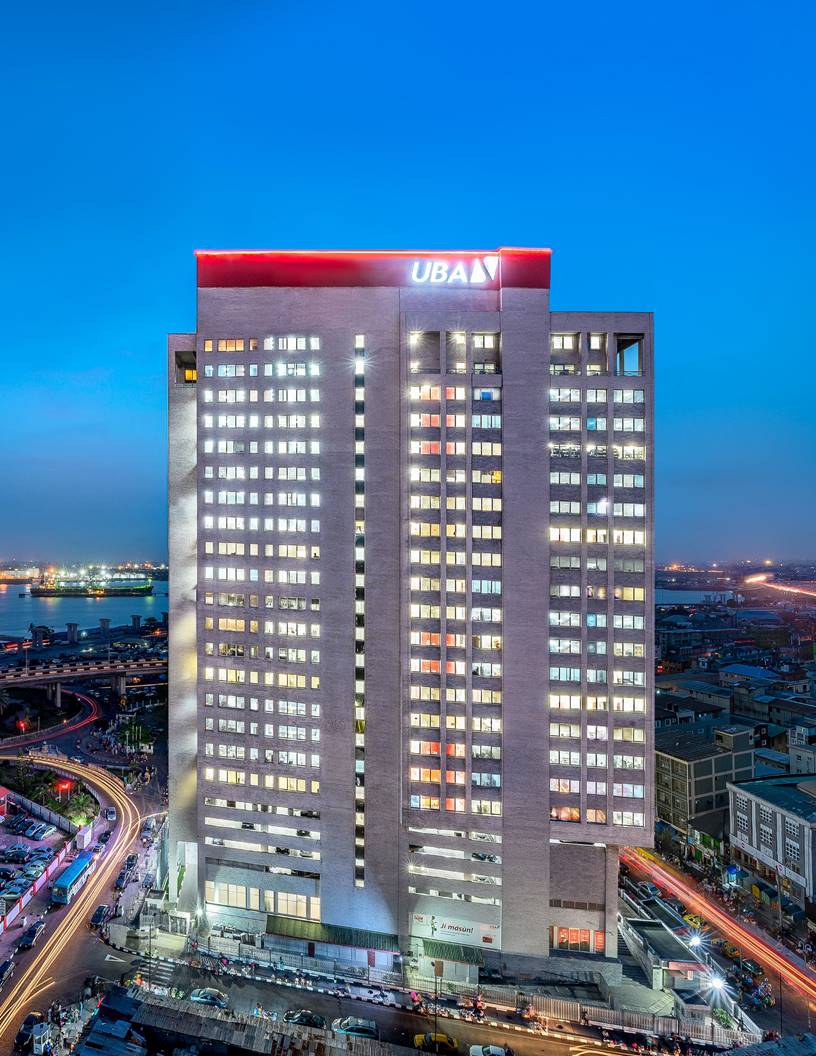E-Financial
Ecobank Appoints MFS Africa as Digital Payment Partner

Ecobank, the Pan-African bank has announced today the appointment of MFS Africa as Digital payment partner enabling cross-platform payment services for Ecobank account holders.
The partnership allows Ecobank customers to send and receive money to and from over 170 million mobile money users through an integration with MFS Africa that covers all Telcos in the MFS Africa Hub. The service is both domestic and crossborder intra-Africa transfers leveraging Rapidtransfer, a proprietary instant remittance product of Ecobank.
Ecobank operates in 33 African countries, serving over twenty million customers. In line with the bank’s digital strategy, the partnership with MFS Africa Hub creates the first major initiative of interoperability between bank account and mobile money customers.
This brings greater value for mobile money customers as they can now send money directly to any bank account in Ecobank without infrastructural hinderances; conversely Ecobank customers can do the same.
MFS Africa operates the largest mobile payments hub network in sub-Saharan Africa, connecting over 170 million mobile wallets, and a wide network of money transfer operators and merchants. Through partnerships with mobile network operators including MTN, Orange, Airtel, Moov, Econet, Tigo, Safaricom and Vodafone, MFS Africa allows mobile financial services to scale across borders, currencies and networks with a Pan African Bank like Ecobank.
“The partnership between Ecobank and MFS Africa represents a significant step in building pan-African linkages between mobile money services and traditional banking channels”, says Ade Ayeyemi, CEO of Ecobank Group.
“Typically, banks and other financial service providers seeking to integrate to mobile wallet systems are confined to domestic markets with almost no interoperability among networks in a single country, let alone across borders, severely inhibiting utility, efficiency, and customer experience. The collaboration between Ecobank Banking Group and MFS Africa eliminates this hurdle and accelerates the ecosystem, driving financial inclusion and offering a greater range of options to Africans”
While conventional wisdom pits banks and mobile money services against each other as incumbents threatened by disruptors, the reality is quite different. Interoperable crossplatform services expand the pie of financial possibilities, bringing more choice and value to consumers using bank accounts or mobile wallets, and leveraging the strengths of both types of players.
Speaking on the partnership, Dare Okoudjou, founder and CEO of MFS Africa says that the region’s financial inclusion landscape offers exciting opportunities for innovation and collaboration between Banks, other financial institutions, Mobile Money Operators and Fintech.
“We’re proud to offer seamless payments across networks and borders into the next frontier of financial inclusion – mobile wallets – to Ecobank customers. Historically, the relationship between banks and fintech has been competitive but Ecobank has demonstrated a win-win approach to partnership that takes care of every stakeholder in the value chain. Ecobank is the first financial institution that shares the MFS Africa vision to make financial services more seamless, convenient, and interoperable across Africa”.
E-Financial
UBA Announces Successful Completion of System Upgrade

United Bank for Africa (UBA) has successfully completed its much-anticipated system upgrade, restoring all banking services to normalcy.

In a message to customers, UBA reassured customers that they could now log in to the mobile app and enjoy a smoother, more efficient banking experience.
The bank acknowledged any inconvenience caused by the process and reaffirmed its commitment to providing top-tier financial services.
“We are pleased to inform you that our mobile app upgrade has been completed, and all services have been fully restored. You can now log in and enjoy a smoother banking experience and improved services,” UBA announced.
While the upgrade promises enhanced functionality and reliability, UBA urged customers experiencing any lingering issues to reach out to its 24-hour Customer Fulfilment Centre via 02012808822 or email [email protected] for prompt assistance.
With the completion of the process, UBA reassured its customers of its dedication to innovation and excellence in banking.
E-Financial
SERAP Gives CBN 48-Hour Ultimatum to Withdraw ATM Fee Hike

Socio-Economic Rights and Accountability Project (SERAP) has called on the Central Bank of Nigeria (CBN) to immediately revoke its recent increase in Automated Teller Machine (ATM) transaction fees, describing the move as “Patently unlawful, unfair, unreasonable, and unjust.”

In an open letter addressed to Olayemi Cardoso, governor, CBN, and dated February 15, 2025, SERAP warned that the fee hike would worsen economic hardship for millions of Nigerians, particularly those at the lower end of the financial spectrum.
The rights group gave the apex bank a 48-hour deadline to reverse the policy or face legal action.
The CBN’s new directive mandated that ATM withdrawals at off-site locations, such as shopping malls, airports, and standalone cash points, will attract an N100 charge per N20,000 withdrawal.
Additionally, a surcharge of up to N500 may apply for transactions conducted at certain locations. The new fees are set to take effect from March 1, 2025.
In its letter, signed by Kolawole Oluwadare, deputy director, SRERAP criticized the policy, arguing that it would disproportionately affect struggling Nigerians while benefiting commercial banks.
“The manifestly unfair increase in ATM transaction fees will hit hardest those at the bottom of the economy and exacerbate the growing poverty in the country,” SERAP stated.
The organization further argued that financial institutions should bear the cost of banking operations, rather than shifting the burden onto customers, particularly those with limited financial means.
SERAP accused the CBN of prioritizing the interests of banks over the welfare of ordinary Nigerians, many of whom already struggle with the high cost of living.
The group pointed out that banks continue to report record-breaking profits while imposing excessive charges on customers.
“CBN policies should not be skewed against poor Nigerians and heavily in favour of banks that continue to declare trillions of naira in profits, mostly at the expense of their customers.
“The increase in ATM transaction fees will inflict misery on Nigerians and contribute to human rights abuses,” the letter read.
SERAP also noted that the policy contradicts President Bola Tinubu’s commitment to tackling poverty in Nigeria.
The rights group argued that the CBN’s action violates multiple legal provisions, including the Nigerian Constitution, the CBN Act, and the Federal Competition and Consumer Protection Act.
SERAP highlighted specific sections of these laws that prohibit unfair business practices and protect consumers from exploitative charges.
According to SERAP, the increase in ATM fees discriminates against low-income Nigerians who may struggle to afford the higher fees, creates a two-tiered financial system that favours the wealthy, contradicts the CBN’s stated mission to promote national economic well-being, and violates international human rights obligations under the United Nations Guiding Principles on Business and Human Rights,
“The CBN has responsibilities under the UNGPs to take effective steps to avoid or mitigate potential human rights harm and to consider ending any charges or transaction fees where severe negative human rights consequences cannot be avoided or mitigated,” SERAP asserted.
“We would be grateful if the recommended measures are taken within 48 hours of the receipt and/or publication of this letter.
“If we have not heard from you by then, SERAP shall take all appropriate legal actions to compel you and the CBN to comply with our request in the public interest,” the letter warned.
E-Financial
FG Seeks Fresh $300m Loan from World Bank for Health Security

Federal government has engaged the World Bank for a fresh $300m loan to strengthen Nigeria’s health security infrastructure.

Information obtained from the World Bank showed that the loan, which is under consideration, will be implemented by the Nigeria Centre for Disease Control (NCDC) with the Federal Ministry of Finance acting as borrower on behalf of the Federal Government.
According to information on the World Bank website, the loan project is expected to “increase regional collaboration and health system capacities to prevent, detect, and respond to health emergencies in the Federal Republic of Nigeria.”
The project is currently in the pipeline stage, with the disclosure date scheduled for February 6, 2025.
The World Bank board is expected to give its approval on July 30, 2025, following necessary assessments. The appraisal is set for April 14, 2025, and implementation will commence in the 2026 fiscal year.
According to a document on the concept of environmental and social review, the Nigeria Health Security Programme aligns with broader government efforts to enhance disease surveillance, diagnostic capabilities, emergency response, and laboratory networks across the 36 states and the Federal Capital Territory.
The programme’s primary objective is to enhance regional collaboration and strengthen Nigeria’s health systems to deal with emergencies. It falls within the World Bank’s investment in health, nutrition, and population sectors across Western and Central Africa.
According to the Environmental and Social Review Summary of the project, HeSP will expand molecular laboratory capacity, upgrade primary healthcare centres, establish emergency operation centres, and construct warehouses.
It will also deploy mobile laboratories and install water, sanitation, and hygiene facilities alongside solar energy systems to support health infrastructure improvements.
Although the total project cost is yet to be determined, the World Bank has committed $300m to the initiative. The funds aim to bolster Nigeria’s pandemic preparedness and improve response mechanisms for public health threats.
The initiative comes as Nigeria strengthens its public health infrastructure following lessons from previous outbreaks, including COVID-19.
If approved, the loan will support the NCDC in improving disease surveillance, diagnostics, emergency response, and laboratory services.
Nigeria has previously secured funding from international financial institutions to boost healthcare resilience, including financing for vaccine procurement, emergency medical services, and infrastructure development.
However, the project, categorised as a high-priority public health intervention, carries substantial environmental and social risks due to potential health, safety, and ecological concerns associated with infrastructure expansion.
Identified risks include increased medical waste, occupational hazards, and heightened energy and water demands.
Social risks range from potential grievances from stakeholders to concerns over land acquisition and implementing health interventions in conflict-prone areas.

 E-Financial1 day ago
E-Financial1 day agoSERAP Gives CBN 48-Hour Ultimatum to Withdraw ATM Fee Hike

 E-Financial1 day ago
E-Financial1 day agoFG Seeks Fresh $300m Loan from World Bank for Health Security

 General News1 day ago
General News1 day agoFG Drops Merger of NCAA, NAMA

 News1 day ago
News1 day agoBinance Chief Insists Some FG Officials, Reps Demand $150m Bribe

 News1 day ago
News1 day agoinDrive Unveils Cashless Bank Transfer Feature in Nigeria

 E-Financial1 day ago
E-Financial1 day agoCardinalStone Acquires Radix Pension Managers

 Telecom1 day ago
Telecom1 day agoNITDA Pledges to Foster Innovation with Cloud Infrastructure and AI Applications

 Telecom9 hours ago
Telecom9 hours agoToriola, MTN Nigeria CEO again Defends Tariff Hikes amidst Backlash


























